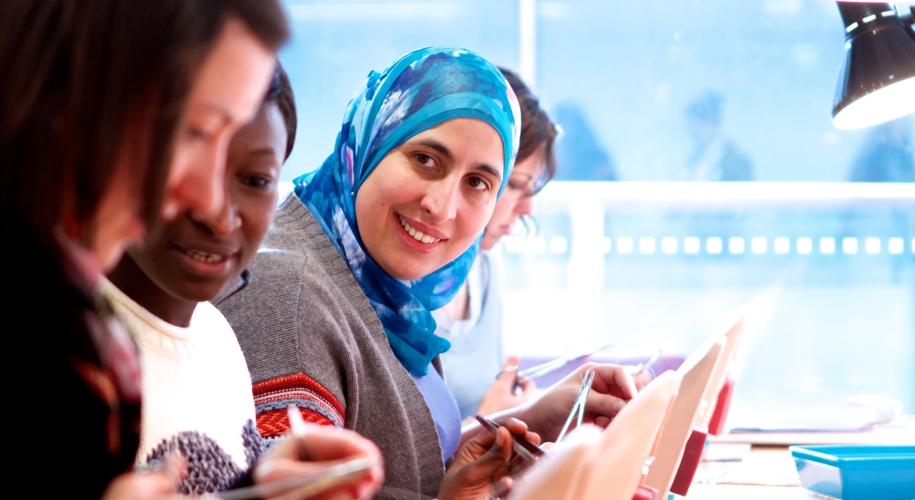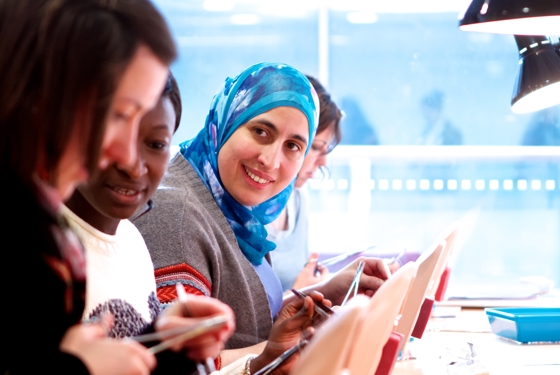Understand how women’s health and wellbeing depend on a healthy planet.
Why sustainability matters in women's health
The climate and ecological crisis affects women's sexual and reproductive health and rights, from the streets of the UK, where air pollution limits lives and affects pregnancy outcomes, to the severe disruption to health care experienced by women and girls living in areas most vulnerable to the effects of increasingly extreme weather.
As a leading voice in women’s health, the RCOG is committed to embedding sustainability across our clinical guidance, advocacy, operations, and programmes of work. This includes a strong focus on equity, recognising the deep links between environmental injustice and health inequality.


Spotlight on the Green Maternity Report
Climate and environment action toolkit
Health professionals are some of the most trusted voices on climate and environmental change and healthcare is a major driver of environmental harm. Find out what you could do to fight the greatest threat to health of the 21st century.
Browse project ideas for a sustainable health service from the RCOG and elsewhere.
Everything you need to plan and execute your first sustainable quality improvement project.
Fight for systemic change and safeguard women and girls.
Our progress and actions
The College’s ambition for sustainability and climate change
Meaningful action on sustainability and climate change was one of Dr Ranee Thakar’s core priorities for her time as RCOG president. With her leadership we have taken the first steps towards a healthier future for women and girls. The college remains committed to protecting the environment and the health and wellbeing of all who depend on it.
Green Maternity: working together for sustainable, equitable care
Green Maternity is a national programme driving collective action to build a lower carbon, fairer maternity system. It brings together NHS teams, clinicians and people with lived experience to take on the biggest challenges in care today.
Maternity care must change. It contributes to NHS carbon emissions and is shaped by deep inequalities in access, experience and outcomes.
Through local improvement projects, expert mentoring and public involvement, the programme turns ideas into action. Its findings are shared through the Green Maternity Challenge, conference and flagship report, which sets out eight priorities to guide future change.
Explore the Green Maternity programme
Becoming a sustainable College
We are committed to reducing our carbon emissions by 50% by 2030 (from a 2019 baseline) and are taking action across the College to meet this ambition.
Examples include:
- 108 solar panels installed meaning Union Street now runs on 100% renewable electricity.
- Upgrading the heating and cooling plant within the building to increase efficiency.
- Enhancing biodiversity at Union Street, including our wildflower meadow and beehives.
- Three new ‘farmstands’ growing herbs and salads for use in our kitchen.
- Replacing single-use plastics with reusable or plant-based materials
- Reducing business travel and reviewing our investment strategy
- Auditing our freight emissions, changing suppliers and requesting off peak delivery slots.
- Expanding digital exams, education and events to reduce environmental impact
Advocacy, policy and influence
We work across the sector and with policymakers to highlight the health impacts of environmental injustice, and support change that protects women and girls.
The RCOG is a member of the UK Health Alliance on Climate Change (UKHACC), a coalition of health professionals advocating for action on climate and health.
Key actions include:
- Publishing policy position statements on outdoor air pollution and climate change and women’s health.
- Collaborating on UKHACC’s policy work on clean air, fossil fuel phase-out and climate justice
- Contributing to the UK policy brief for the Lancet Countdown on Climate and Health
- Advocating for cleaner air and climate action which responds to women’s health needs, through blog posts, proactive communications, and engagement with parliamentarians and the UK Government

